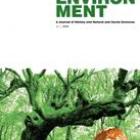Higuchi, Kazukiyo, and Michael G. Norton. “Japan’s Eco-Towns and Innovation Clusters: Synergy Towards Sustainability.” Global Environment 1 (2008): 224–43.
There are substantial differences in resource productivity between countries. This suggests that the global environmental impact of economic activities could be reduced if appropriate policies were applied more widely. Japan has one of the most eco-efficient economies in the world. The present paper looks at the history of two central policy measures designed to stimulate the emergence of a more sustainable industrial base. One of these (Eco-town) focuses on creating concentrations of industry designed to use societal wastes and industrial by-products as sources of products and raw materials. The other (industrial clusters) encourages innovation and the creation of new businesses focused on environmental protection. The results are now showing that investment—both in recycling technology and facilities, and in organisational structures supporting a more recycling-oriented economy—promises to establish viable industries with significant contributions to local economies. The international relevance of Japan’s experience is also considered. (Author’s abstract at The White Horse Press.)
All rights reserved. Made available on the Environment & Society Portal for nonprofit educational purposes only, courtesy of Gabriella Corona, Consiglio Nazionale delle Ricerche / National Research Council of Italy (CNR), and XL edizioni s.a.s.


